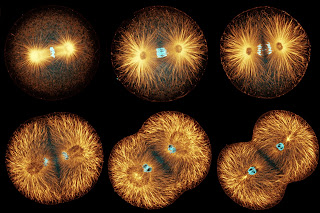2nd August Trinity
“Do not judge your fellow man, so that your judgment will not someday be visited upon yourself. For with the judgment that you pronounce you also speak your own judgment, and the measure by which you measure will be the measuring rod for your own self. Why do you look to the splinter in your brother’s eye, but do not become aware of the log in your own eye? Or how can you say to your brother: “Wait, I will pull the splinter out of your eye”. But mark it well, there is a log in your own eye. You hypocrite, first remove the log from your own eye, and then you may be able to see how to remove the splinter from your brother’s eye.
Do not give what is holy to dogs, nor throw pearls to the swine, for these will tread them underfoot, and then turn upon you and tear you also to pieces.
Ask from the heart and it will be given to your heart; seek and you will find; knock and it will be opened to you; for he who asks in uprightness will receive; he who earnestly seeks will find; he who knocks, to him will be opened. Or are there among you those who when his son asks for bread would give him a stone; or when he asks for a fish would offer him a snake? If then you who in spite of wickedness know how to give good things to your children, how much more goodness will your Father in the heavens give to those who earnestly ask him for it.
All that you want that men should do for you, do first for them. This is the true content of the Law and the Prophets.
Walk through the narrow gate; for the gate is wide and the path is easy which leads to ruin [the abyss] and many are they who walk it. But narrow is the gate and difficult the path that leads to Life, and it is only the individual who finds it.
2nd August Trinity
Matthew 7, 1-29
 Today’s gospel reading takes us on an inward spiral. This spiral clears a path for Christ to enter our hearts.
Today’s gospel reading takes us on an inward spiral. This spiral clears a path for Christ to enter our hearts.
The first step inward is to notice our tendency to criticize and judge others. By focusing on others, we can fail to notice how such faults live within us. Critical judgment of others blinds us to what needs correcting within our own souls. It creates a closed door, a barrier to inwardness of heart. We need to pay attention to the direction in which we focus our attention.
The next step is to learn to protect the holy, to refrain from letting the profane overwhelm what is sacred. That which is holy is that within us that connects us to the divine. It must be protected from destruction. One way we profane inner holiness is by talking it to death. So this step suggests we enter an inner silence, and create a well-guarded inner treasure-chamber.
The third step is to bring our practice of prayer into the deepest part of our heart. We are not to treat the divine world as a kind of cosmic vending machine to satisfy our material wishes. Rather we are to offer our deepest needs, our deepest heart to the Father. We submit our hopes to his greater will and wisdom. He knows even better than we do what would truly benefit us.
And lastly we are to choose to treat others with respect and with wisdom.
A critical attitude of mind, a profaning of the sacred and a demanding heart; they operate within us as powers of diminishment and destruction. They eat away at our true, wise discernment, our inner relationship with God and with our fellow human beings. John O’Donohue said,
Where the eucharist of the ordinary happens,
Transforming our broken fragments
Into an eternal continuity that keeps us.
Somewhere in us a dignity presides
That is more gracious than the smallness
That fuels us with fear and force,
A dignity that trusts the form a day takes.
So at the end of this day, we give thanks
For being betrothed to the unknown
And for the secret work
Through which the mind of the day
And wisdom of the soul become one.
“The Inner History of a Day,” John O’Donohue, in To Bless the Space Between Us














